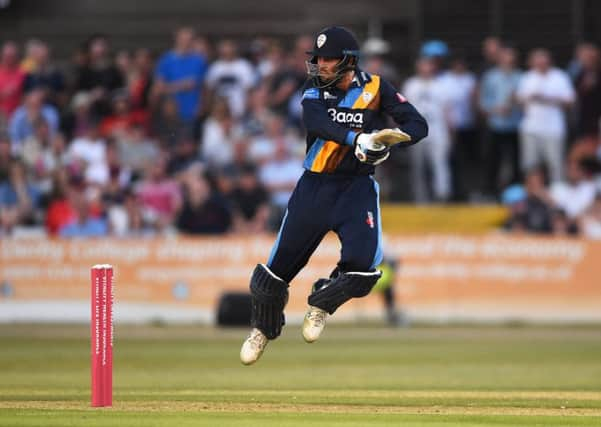Scotland can reap rewards of ‘death or glory’ T20 league


This is a major progression from the domestic competitions now well established in the three counties, as well as the former North Sea series.
The opportunity to join the proliferation of new T20 events elsewhere around the globe is a major plus for the countries and must be embraced by our players, spectators – and the business community.
Advertisement
Hide AdAdvertisement
Hide AdWith events now cemented into the schedule of all the major Test nations, as well as Associates UAE, Nepal, Hong Kong and Canada, the Europeans were undoubtedly missing out.
Although the new event will coincide with the Caribbean equivalent, as well as the tail end of the English domestic season, it will still be a major boost for cricket in Scotland, both commercially and in terms of raising the profile of the game.
The three governing bodies are to be commended for setting up the event, which will support the growth developmentally and commercially of the game as well as improving the performance levels of our top players.
The key has been partnership with media companies to secure access to Asian television markets. This was always the primary aim of the European countries as, in Asia, cricket is the dominant sport with high commercial value.
Hopefully, partnerships can be formed with Indian companies with Scottish interests and connections to maximise these values.
As the T20 phenomenon has exploded around the globe, so have the opportunities for our leading cricketers to generate income.
Scotland’s top players such as Calum MacLeod, Safyaan Sharif and Kyle Coetzer have already plied their trade in some of these events and the European version is a further opportunity for our players to put themselves in the shop window. Others such as George Munsey and Richie Berrington must also be relishing this chance to showcase their talents.
Scotland needs to be able to offer career paths for its top professionals and global T20 income must be part of this. We already see Afghan and Nepalese players in both the Australian Big Bash and the Indian Premier League, why not Scots in the future?
Advertisement
Hide AdAdvertisement
Hide AdFor the top 18 players in Scotland the event will also continue their exposure to top level competition as well as playing alongside some quality cricketers from around the world.
It is a great opportunity to learn from players, who will surely be some of the key exponents of the game’s shortest format. Many international cricketers make their living from participating in leagues around the world and will also see the European version as a potential market – especially those not picked up in the Caribbean Premier League draft or with a window before similar leagues start in Sri Lanka, South Africa and the UAE.
This can only assist in the preparations for the World T20 qualifier taking place soon afterwards where the Scots will be under pressure to qualify for the World Cup in Australia in 2020.
Although the format is just over 15 years old, cricket has been reinvented by the T20 game. From the first professional event in England in 2003, through to the first World T20 in 2007 and the modern day global dominance of the format, it has changed the game forever. The pace of scoring in all forms of cricket has accelerated beyond belief, bowlers have had to develop new variations and the quality of fielding is superb all around the world.
There was no better example of this than just last week when England scored well over 400 in a 50-over match against the West Indies, who only fell 29 runs short. Jos Butler scoring 150 off just 77 balls and Chris Gayle replied with 162 off 97. In total 807 runs were scored in 98 overs with 46 sixes hit.
These statistics are mind boggling and show just how far the game has progressed, due to new skills and the mind-set of modern day T20 players.
Batsmen brought up on T20 cricket play reverse sweeps, scoops and switch hits with the same proficiency previous generations played the cover drive. Fear of getting out has been replaced with the fear of striking at less than a run a ball. Chasing 100 in the final 10 overs with wickets in hand is now seen as a regulation chase where once it would have been viewed as impossible.
T20 has moved the game on, with all forms of cricket reaping the benefit in terms of excitement. The death or glory mentality of T20 is now commonplace in 50-over games.
Advertisement
Hide AdAdvertisement
Hide AdNothing stands still and England is now evolving the T20 format into its new 100 ball game. Although only 20 balls fewer will be bowled, matches will fit better into television schedules and new concepts such as time outs will be introduced.
Research shows this is what spectators at the ground and, importantly, TV viewers at home want. As an entertainment product, cricket must oblige to stay relevant and fresh against its competition.
Scotland, Ireland and the Netherlands are coming late to the jamboree that is franchise T20 cricket. Hopefully this really positive development and success of the Edinburgh and Glasgow teams in season 1 will lead to a sustainable future for the new league.
l Roddy Smith was chief executive of Cricket Scotland from 2004 to 2014.